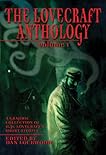 Blackout by Connie Willis
Blackout by Connie WillisMy rating: 3 of 5 stars
I don't like cliffhangers. I knew this was a continuous story with All Clear, but I am not inclined to jump into another 500 page novel with these same, quite frankly, not very interesting characters and their predicament as time travelers stuck in London during The Blitz.
The opening scenes in Oxford have a madcap energy that got me all excited about what might come next. In 2060, historians have become time travelers, going back in time for firsthand information on everything from the Crusades to World War II. In Oxford, the historians are the cool kids on campus, rushing from wardrobe, to props, to research, crossing paths with coworkers and competing for slots in a crowded schedule of drops and pick-ups. There are hints, however, that something is going wrong, some glitch in the system that is causing increasingly frequent slippages in time and place. Historians find themselves arriving days earlier or later than they intended, and sometimes miles from where they expected to be.
Willis follows three main characters and a couple of minor ones, and everything would seem to be in place for a thrilling read -- Dunkirk, the Blitz, life among child evacuees. But although the situations are realistic, nothing very interesting is happening to anybody. Things are going wrong, there are injuries and confusion, and each character's drop point, which is also their retrieval point, has ceased to operate. All this mounts up to the kinds of crises you would expect to see in a British TV series available on DVD here in the states. And just like I might find myself renting the second series just to see what finally happens, I can imagine myself picking up All Clear with a combination of irritation and curiosity.
Unless All Clear turns out to be a knockout, Willis should have gotten this over in one book.
View all my reviews











